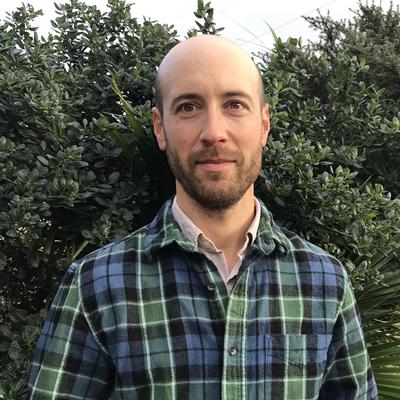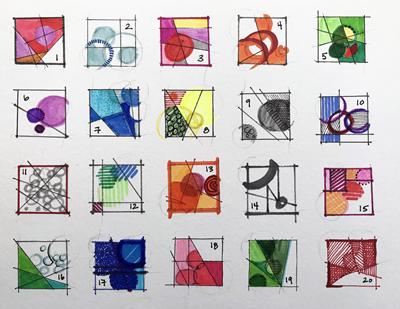Innovative teaching in the pandemic world

The COVID-19 global pandemic has driven educational organisations around the world to look at different ways to continue teaching their students.
Dr Eli Lazarus, an Associate Professor in Geomorphology, in Geography and Environmental Science at Southampton, wanted to find an alternative to online lectures and came up with an innovative way to engage his students in exploring the concept of risk.
Eli has completely reworked the Dangerous World module he leads for first-year students and produced a podcast focusing on the ‘Geographies of Risk’ that has been published on his blog.
The podcast features interviews with researchers, including some from the University, who are investigating risk in different contexts and settings. Collectively, the episodes explore a wide range of topics from a variety of disciplines and perspectives.
We talked to Eli about setting up the podcast, the themes that have emerged and his reflections on the project.
What inspired you to start the podcast?
This summer, when it was clear the semester ahead – and maybe others beyond that – would be virtual, I wanted to change the way that I taught my first-year, first-semester survey module Dangerous World.
Although I had a couple of years of recorded lectures in the bank, I didn’t want to make new, less energetic versions that I had recorded alone in a spare room. So, I decided to rebuild the module as a podcast – turning each lecture into an episode in which I interview a different expert whose work engages with the concept of risk in one form or another. In terms of content, this offered extraordinary freedom and opportunity. I could interview people wherever they were in the world and bring their voices right into class.
With no exam to worry about, I could let the syllabus evolve over the course of the semester, and even steer it toward topics the students might want to cover. Mixing a podcast into students' broader module diet of pre-recorded lectures, timetabled sessions, and other virtual-classroom interactions, seemed like a fun way to add some variety and flexibility to their online experience.
What did you hope the podcast would achieve?

My own research engages a very narrowly defined version of risk, which I've tended to transfer into the classroom. Working within carefully defined bounds is part of being clear about what your findings do and don't address. But the aim of the podcast was to crack the concept of risk wide open – as much for myself as for anyone listening – by talking to people who think about risk in all sorts of ways I don't.
We all navigate geographies of risk. Those risks may be chronic and persistent, like reliable access to nutritious food. Others may be brought into focus by a current event, like systematic voter disenfranchisement during a democratic election. The concept is relevant to everyone, even if a given topic isn't. I quickly realised there are geographies of risk I didn't know existed, or hadn't really thought about before – and therefore how limited my conception of risk has been until now. I bet that's true for a lot of people – they may be surprised by the diversity of topics that can be described as geographies of risk.
So, my goal has been to explore manifestations of risk in as many different contexts, settings, and methodological approaches as will fit into twenty-or-so episodes. Environmental, social, cultural, health, financial, economic topics are all on the table. I wanted to listen to experts in those contexts and settings and topics discuss their work – along with what has motivated them to study what they do, and what they enjoy most about their own research processes. And I wanted students, and anyone else tuning in, to be able to hear the way those explanations and reflections come through in conversation.
Who has been listening to them?
I know the students in class are listening, and I’m getting the sense that the podcast is beginning to percolate through a much broader population of researchers who study risk and disasters in different spheres and disciplines – a degree of separation or two beyond my immediate network. The people I’m interviewing are all part of vibrant professional communities who will amplify an episode of particular interest to them. That outward ripple is exciting.
When I was first describing the premise of the podcast to friends, trying to psych myself up to do it, most of them asked if there was a way they could listen, too. As a medium, podcasts bring in all kinds of listeners – the same way a given section of a library attracts all kinds of readers. And, as in a library, regular listeners browse for new podcasts. They ask friends for recommendations. But podcasts also have that wonderful element of radio: you can switch it on without knowing quite what you'll hear, and part of you always wants to be pleasantly surprised.
You explore a variety of topics, from mapping the spread of disease, to accessing healthy food, to hurricanes, flood risks, and wildfire disasters. Which have proved the most popular or controversial?
Many of the people I've interviewed engage with critical theory: in their respective contexts, they are fundamentally interested in examining and challenging predominant power structures and the prevailing cultural narratives that derive from them.
I think the critical perspectives you hear in these interviews – critical perspectives of prevailing narratives and practices in the huge field of disaster research – are fundamentally important. If international and national institutions around the world are serious about reducing disaster risk, then these critiques of the modern technocratic approach to disaster risk are the ones that will throw a bright light on the structural, systemic transformations that need to happen.
Another vital aspect of disaster studies that deserves far more recognition and attention is the role of coloniality in shaping pre-disaster risk and post-disaster recovery. Coloniality is a malignant social and cultural legacy of colonialism, such that in post-colonial settings, inequity and inequalities get systemically perpetuated, reinforced, exacerbated – directly and indirectly – by instruments of social and economic policy. When you think about that, you realise that major hazard events – cyclones, floods, earthquakes, volcanic eruptions – are crashing into coloniality all around the world. Those historical legacies need to be addressed if we're going to gain any leverage on disaster risk.
Students listening to the podcast have requested an episode dedicated to austerity, which they see as underpinning many of the other topics, from food security to informal care to risky employment – and even community resilience to external shocks like this pandemic. Much like a cyclone or flood, austerity has a way of exacerbating existing inequities, widening socio-economic disparities. Students have shown me they're very aware of this pandemic as a formative historical moment. They're also aware that, in the UK, especially, the pandemic has met a societal context shaped by a decade of austerity. They want to know what the future looks like, what the way forward looks like, what that geography of risk looks like and to then find ways to reclaim agency.
Has your own sense of the podcast changed as you've worked on it?
There are themes starting to emerge, organic links between episodes that I didn't impose or anticipate. Lining up these episodes creates an absolute torrent of ideas. The project feels very alive to me – like I give it suggestions about where to go, but I'm not in control. It's exhilarating. And I hope some of that energy comes across in these recordings.
I'm learning so much from all of the people I'm speaking with and I'm having such a good time listening to what they have to say, and to how they say it. Hearing people describe and unpack their own research and their creative processes is so instructive, and inspiring. The people I'm interviewing are discussing ideas and topics that they think about all the time – and think about deeply. These are the puzzles they have chosen.
I am pairing these discussions with columns and articles and books they've written, or with photographs of their practice – and the way people's personalities come through in conversation adds such a compelling dimension. None of that would happen if it were just me, attempting to summarise their work in a lecture. That's why I'm grateful for the time they've all taken to speak with me.
How do you hope the podcast will develop in the future?
Students have asked if I'll keep going even after this semester is over, and I'd like to. I have ideas for people and topics I'd hope to line up for a ‘Season Two’.
We're launching a special seminar series on ‘Geographies of Risk’, hosted by Geography and Environmental Science, which will run through the spring. Everyone I've interviewed has been invited to present a guest seminar. We'll record and compile the presentations – which will be virtual – and make them freely available online so that anyone can view them.
The seedlings of research collaborations are starting to appear from these conversations, and some of the people I've interviewed have been unaware of each other, even though they work on related research themes. Seeing those connections happen has been exciting.
How can people get in touch to feature on the podcast, or suggest topics to explore?
I am happy to field suggestions – via email or Twitter – for people to interview or topics to feature.